12 classic albums that defined 1994

Updated August 2024
August 2024 marks the 30th anniversary of Oasis' Definitely Maybe, Portishead's Dummy, and Jeff Buckley's Grace, three albums that remain essential listens to the present day. Below we look back at the impact of these albums, plus nine other classics from 1994.
This list was originally compiled for 6 Music's 1994 Day in 2017, and features personal odes to each album from staff working for 6 Music at that time. The list was updated in April 2024 to add Hole's Live Through This.
Oasis - Definitely Maybe

Lisa Kenlock: 1994… when summers were hot and lasted forever! When Oasis' Definitely Maybe was released, my friends and I put it on and something happened - Rock n’ Roll Star starts to play, we smiled at each other. We all knew this was going to be special.
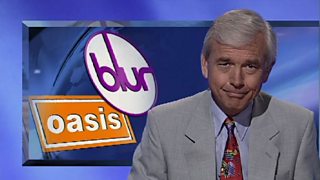
What did it mean in 1994? It meant SO much. Finally we had an album that we didn’t need to hide behind. It went straight to number one in the UK album charts and was the fastest selling debut album of all time in the UK, 7 times platinum. This album validated our scene, our music, our clothes, our clubs, and our choices. The cassette didn't leave my stereo (or my older friends’ cars) for that whole summer.
It pairs rousing guitars with light hearted optimism which is exactly what we needed after the onslaught of grunge and its theme of isolation and depression. A theme that had us shaving our heads, making very questionable wardrobe choices and worrying our parents!
Liam was bold and confident; he reminded us that a frontman can be funny and cheeky and boy - did we need that (see above re grunge…) Cigarettes and Alcohol was my first experience of an anthem (I had just turned 15) which makes you sing your heart out with all your mates smiling from ear to ear, loving every minute - “You’ve got to make it happen, you’ve got to make it haaaaaapeeen”!
The Gallagher brothers also showed a softer, more serious side with tracks like 'Slide Away' and 'Married With Children'. They highlight the trials and tribulations of relationships which we’ve all grown up to understand at a deeper level. “And it will be nice to be alone for a week or two, but I know I’ll be right back here with you.”
This album will always have a place on my digital music service of choice!
Jeff Buckley - Grace
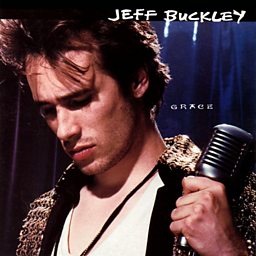
Gary Bales: In 1994, Radiohead hit a brick wall while recording their second album The Bends. Attempting to complete a recording of Fake Plastic Trees, producer John Leckie suggested the band should go and watch a new singer called Jeff Buckley who was playing at the Highbury Garage in London. They did, and when they returned to the studio after the gig, Thom Yorke nailed the vocal in two takes and broke down in tears afterwards.
Such was the influence of Jeff Buckley to all who ever heard his seemingly heaven sent voice. His debut album Grace was released to much critical acclaim in 1994, but small sales. Initially the record seemed to get lost amongst the excitement of Definitely Maybe and Parklife, but found a growing audience as the year progressed, mainly through word of mouth. It was an astonishing record – taking influences from the likes of Led Zeppelin, The Smiths and Nusrat Fateh Ali Khan, and featuring cover versions of the standard Lilac Wine and Leonard Cohen’s Hallelujah, it nevertheless held together as a monumental collection of tracks.
Following his tragic death in 1997, Grace sadly will always remain his one true studio album. But what a legacy to leave. An album of huge influence and importance, this staggering debut will find new audiences for decades to come.
Portishead - Dummy

Hazel Southwell: Portishead's dark, spooky creep of an album that defined trip hop. The Mercury prize winner that got to two on the official albums chart. The challenging, downbeat sound of lying in a rumpled bed, deep in the sonic blanket it weaves.
Some albums are your friend, some give you a hand up, some drag you to the dancefloor or transport you to a stadium. Dummy spoons you, silently as you stare at the wall. It's the focus on the bit of chipped wood by the doorframe that always draws your eye, the lazy repetition of thought exercises into how the room is engineered, the not thinking overthink, melodrama without dramatics. It's for goths but you listen to it in a dusty sunbeam.
It's an album to drown in, a thought-clearing, all-encompassing sound. Trip hop's prog and electronic influences are clear but the moody depth of them here does not feel like a debut - it seems impossible that Portishead put it together from a nascent genre, so perfectly poised and definitive.
There's no dancing, maybe not even drinking or err, cavorting to it - just the after-effects, the considered thoughts of working it out, cold calculation rather than raw emotion. Dummy instructs rather than explaining and that imperious command, the perfect restraint that would let them create even tighter, more intense sounds in their subsequent albums, is what holds you to it and demands your full and undivided attention, mesmerised.
Blur - Parklife
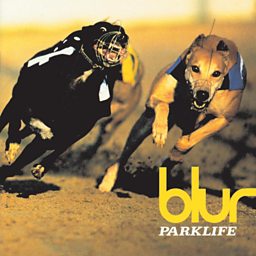
Mike Hanson: The words "legend" and "genius" get bandied about a lot when describing music. Another phrase is "era defining". But if any album sums up the Britpop scene, it’s Blur’s Parklife. If Britpop was a jolly cheeky chappy English response to the misery-themed American Grunge that dominated guitar music in the early part of the decade, then Parklife is as none-more English as it gets. Britpop in general and Parklife in particular was the most quintessentially English music since The Kinks. The title track alone achieves this from guest narrator Phil Daniels' cockney delivery to the themes of daily working class British life to specifically British expressions like ‘dustmen’ and ‘cut down on your pork rinds, mate.’
Beyond that, tracks like ‘Girls and Boys’, ‘This is a Low’, and ‘To The End’ showed Blur to be more versatile and varied than their rivals Oasis, and Parklife put them on the cusp of worldwide fame. The album was nominated for the Mercury Music Prize (only to lose to M People! No really!) and frequently makes the various ‘Best Albums Ever…’ lists, not only here in the UK, but across the Atlantic as well.
The following year they released The Great Escape and with ‘Country House’ going to No. 1, beating Oasis’ ‘Roll With It’ in a Beatles v Stones rematch, which made headline news and ushered Britpop fully into the mainstream.
But when looking back on 1994, it is Parklife that perfectly sound tracks that year. "Parklife!"
Hole - Live Through This
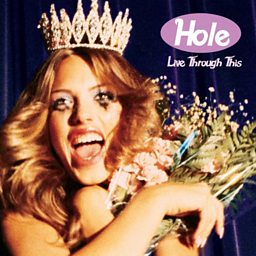
Courtney Love, speaking to 91热爆 Radio 6 Music in April 2024:
"Live Through This got good because the stakes got way higher. I lived with Kurt, we wrote a lot, we wrote a lot in bed, we never really got out of bed! There are actually, somewhere, two diaries with all of the lyrics to In Utero and all of the lyrics to Live Through this...
"Being around Kurt and being able to compete with him helped because he was really, really good with a melody and chords. He took my right-handed guitar, turned it upside down, he was a lefty – that’s something you only know how to do when you grow up poor - and he wrote Dumb in 20 minutes, in Amsterdam. I was so mad I left the room and got some Leonard Cohen things at HMV and I threw them at his head and said 'you need to get your lyric game up, buddy!' But it was good to have that competition in my house."
"We were in a great place as a band. We practiced six nights a week because I wanted a really tight band. I could express myself now, all my heart all my soul, all my guts."
Courtney also gave this tip on what women in the music industry should be listening to:
"Any of you women out there making music... Every girl that I talk to that’s coming up, whether it’s The Last Dinner Party, Baby Queen, I tell them all: 'Go listen to the G.O.A.T. Go listen to Patti Smith, go listen to PJ Harvey, go listen to the original gangsters of what this true feminine fury is! Don’t listen to this studio-produced, I dunno, whatever… Go listen to Bessie Smith, go listen to Big Mama Thornton….go listen to the real thing.”’
Manic Street Preachers - The Holy Bible
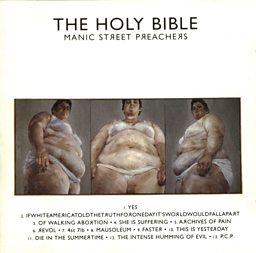
Rowan Collinson: With songs including The Intense Humming Of Evil, Mausoleum and Die In the Summertime, the Manics’ third album was never going to be 1994’s easiest listen. But somehow channelling the buzz saw guitars of Nirvana with lyrics referencing Sylvia Plath and Pol Pot, ‘The Holy Bible’ became one of the year’s landmark records; brutal, powerful and uncompromising. After appearing on Top Of The Pops playing ‘Faster’ dressed in IRA style-balaclavas, the band ended the year smashing up their gear on stage at the London Astoria – a reflection of the increasingly fragile health of lyricist Richey Edwards by this time. Two months later Richey was to disappear and the band would never be the same again.
Nas - Illmatic
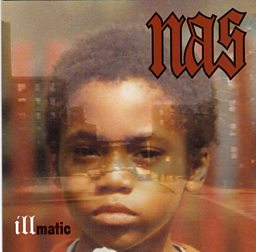
Hazel Southwell: 1994 was a good time for hip hop. Although it hadn't quite hit the mainstream heights of the later 90s and early 00s, Tupac and Biggie were on the rise and rap had established itself as very commercially viable, as well as a politically and artistically rich genre.
Illmatic's influence was more in its long tail, in the fact it did well enough to launch Nas' career than in its actual impact in the year it was released. But that's too reductive of an album that seriously affected the way mainstream music coverage talked about hip hop, as well as transformed and defined East Coast style.
1994 had a lot of influential albums but very few on the scale of Illmatic. If you've loved an East Coast rap album since, it owed a debt to Nas' debut - maybe if you've loved any discursive hip hop, anything that spends as much time on its sense of place and the sounds of its environment as Illmatic does, the city and situation it's about bleeding into every beat.
Illmatic is most often hailed as lyrically definitive. Nas' easily intellectualised style - broad vocabularly, delivered clearly, is a critic's dream in terms of comprehension, even if they're not familiar with hip hop and the politics of ghettoisation that the album is preoccupied with. Probably no hip hop album would be written about so comfortably by non-specialists until maybe Kanye's Graduation.
From the wry, observational wisdom of 'Memory Lane (Sittin' in da Park)' to the more direct self-establishment of Michael Jackson-sampling 'It Ain't Hard To Tell' and the psychogeographical exploration of 'N.Y. State Of Mind,' Illmatic is a considered album. It's another debut that's so certain of itself and the landscape that it sits in that it seems impossible to be a first album.
The smooth, catchily understated nature of Illmatic leaves lines slightly the wrong side of the watershed to publish here going round your head for days. Deeply immersive, the specific artistry of the aesthetic Nas creates to set the backdrop of a discussion about identity and existence in the US is still desperately relevant.
Orbital - Snivilisation
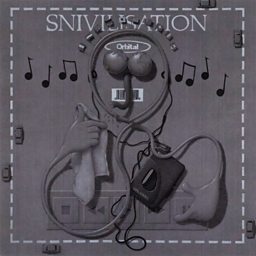
Hazel Southwell: 1994 saw the introduction of the Criminal Justice Act, a wide-sweeping piece of legislation which specifically targeted certain "anti-social behaviours" as criminal. From playing music with repetitive beats to squatting, it was seen as an attack on alternative, counter and protest culture.
Orbital, having taken their name from the unlicensed rave scene, were the natural enemies of the act. Snivilisation is exactly what it says on the tin - a sneering sideswipe at anyone too cowardly to accept the new, a smart nod to a protest you could take glowsticks to.
At its heart, Snivilisation is a great dance album; the anthemic Crash and Carry perfectly typifiying the music "wholly or predominantly characterized by the emission of a succession of repetitive beats". Even taken out of its cultural context, though, it's impossible to miss the anger, the dissatisfaction and the intent behind the party. This is a rave at the end of the civilised world, a disruption to the idea of it being extracted from the political.
The Prodigy - Music For The Jilted Generation

Hazel Southwell: Having only been born in the mid '80s, my involvement in 1994 rave culture was quite minimal. I did not know much about the Criminal Justice Act and, despite lurid press warnings, no one had ever tried to give me E.
I was, however, aware of The Prodigy. It'll come as no surprise that the screaming, banging and occasionally whimsical noises of Experience's singles held as strong an appeal to an under-10 as they did to someone who'd been awake for 36 hours doing a bit of chemically assisted dancing. Brought up on a steady diet of Radio 1, I used to fall comfortably asleep to the noises of whatever late night show was on and so even if I didn't personally know anyone with a soundsystem, I did have a lot of C90s filled with rave.
Music for the Jilted Generation is an album deeply rooted in its situation. From the explicitly political protest of 'Their Law' to the pounding attempt to reclaim rave culture from the mainstream that Voodoo People (with some irony) has filled dancefloors with for decades. Skipping between film references and the deft manipulation of dynamics that has made the Prodigy such a towering force in British music, Music for the Jilted Generation draws you in, works you up and then offers no further direction other than more.
It's an album about excess - the Narcotic Suite an explicit reference to what it otherwise not so much hints at as holds a flashing, neon sign up about. The excess is everything, though - overreaching legislation, exploding scenes, dancefloor meltdowns on a John Martin scale. It's the romance of pastorale about a mud-churned field and the artificial testosterone of a thousand bar fights stumblingly avoided.
If you can listen to any of it - but especially the infectious, commanding quasi-trance of 'No Good (Start The Dance)' without being transported to every sticky floor you've ever slid across and every sweaty, happy, defiant journey home you've made in too few clothes, wide-eyed and intoxicated on movement then you've been to very different clubs than I (eventually) went to.
Suede - Dog Man Star
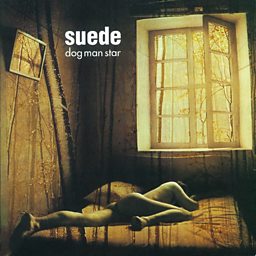
Hazel Southwell: In 1994, Suede decided to take a bet. They went with the (well-indicated) idea that if cocaine had been the drug of the 80s then heroin was going to write the albums of the 90s, that the dynamics of the decade would be romance with prog tendencies, that this was the moment to write an album about a series of avant-garde films.
None of these things turned out to be true; lager, laddishness and abbreviated, punchy, anthemic pop would be what made the biggest bands of the next few years. Somehow, Suede still worked - this intense, emotive and highly engineered, lushly orchestrated album would sit uncomfortably against the rest of Britpop and half-destroy the band as Brett Anderson and Bernard Butler's songwriting partnership fell apart so completely that Butler left before the record was finished.
Caught up in its own romance, Dog Man Star is method-acting at its most effective. Supposedly, Brett watched the Rolling Stones' proggy, intoxicated movie, Performance, every night during the recording. It sounds like a band making themselves intolerable - to themselves, to each other - to ensure the record was perfect.
Not as commercially successful as its peers (Parklife and Definitely Maybe) as it moved away from the narrative Britpop was writing about itself, Dog Man Star is now one of the most iconic albums of the year and Suede's enduring, improbable, obsessive classic.
Tori Amos - Under The Pink

Hazel Southwell: This is not real/this is not really happening - Tori Amos' second album walks a perfect line between just enough romance to talk about the grotesque. Its lead single, 'Cornflake Girl,' is a pretty, cynical, explicit ode about female genital mutilation - catchy and in places rollicking, you could almost, almost miss the meaning if it didn't switch between skin-crawling allegory to unflinching reportage, delivered with the casual bluntness of truth: things are gettin' kinda gross.
It is very difficult to be a casual fan of Tori Amos. Her personal, political, tell-all, tell-nothing style is something you can either be suitably obsessed with or leaves you cold. Under The Pink is the album one of your friends gets into and you don't really see them listen to anything else for months - in my case, the friend was me. I, too, have been conflicted and consumed by religious angst and social grief and an endless need to over-relate to Laika the space dog via melodramatic neoclassical.
Although it has some rockier moments (like 'God,' whose topic is self-explanatory) this is an album firmly within a classical comfort zone - Tori won't quite break further out of the wispish, Celtic-tendencied womb her music is anxiously incubated in until Boys For Pele. But Under The Pink is full of confidence, for all that -certain of its influences and her command over this palette of sound is total. When you're talking about things as deeply as uncomfortable as the topics Tori lays bare here, doing that in a familiar language is no lack of boldness.
If you've ever been a little - or a lot - strange, even decades later, it's almost impossible this won't have worked its way into your musical vocabulary, the foundational reading of every primer in being unacceptable. Tori's music is about the wearying defiance of having to exist - and Under The Pink lives so furiously large.
Underworld - Dubnobasswithmyheadman

Hazel Southwell: From their twin birth, something had happened between rock and dance by 1994. Techno had split from the baggy, guitar-wielding culture it'd grown up with and out of. It's weird when you see your old mates and they still dress the same.
Meanwhile, grunge and shoegaze had taken the euphoria out of rock. The pubescence of the post-Cold War world had slipped into a mid-90s desire to act out and not much punk to do it with. Instead, a concentrated hedonism facing off against an equally distilled misery and the inertia of a global rearrangement that fulfilled neither threat nor promise.
Enter Underworld. Or well, enter Karl Hyde to find his ex-bandmate, Rick Smith, hanging with DJ Darren Emerson. Applying the pop songwriting nous that Britpop was transforming indie with to songs that were created auto-remixed meant that they could take all the skill of knowing how a song was constructed so every thread pulled apart in a perfect unraveling once they began to tug on them.
From its chaotic, trompe-l'oeil cover to the textural chaos of its contents, Dubnobasswithmyheadman is smarter and deeper than it should be. An album that declares its own baseness as a trick to stop you realising how clever its architecture is. It smashed rave - and to some extent, its Britpop cousins - into an earthy, arty crescendo of potential.
Follow us on Twitter or on Instagram .
Listen to 6 Music on 91热爆 Sounds, or find out other ways you can listen.